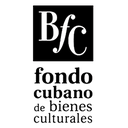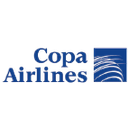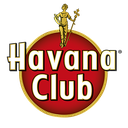Executive Secretary

XIII International Conference on Business Studies
CICE 2025
XI International Workshop on Hospitality and Tourism (HOTELTUR, 2025)
Abstract
Faced with the challenge posed by the Cuban Ministry of Tourism to increase service exports in a complex environment for the sector in the country, the Villa Clara School of Hotel and Tourism, with its Development and Innovation Unit, has taken on the goal of designing academic tourism products based on the incorporation of a strong experiential component and the professionalism and expertise of its faculty. This is in response to the insufficient availability of educational offerings with income-generating capacity from hotel and tourism schools, amidst the growing demand for academic tourism in topics that are trending in ALBA and the Caribbean countries. Theoretical methods specific to educational research were employed: induction-deduction, the historical-logical method, and the systemic approach. Empirical methods were applied through observation, group work, and data review. The design of four short courses (endorsed by the Scientific Council of the Villa Clara University of Technology and Humanities) is presented. These courses are already part of the Villa Clara University of Technology and Humanities Academic Tourism Catalog, incorporated into the management of the Havanatur Tourism Association. These courses cover current trends (circular economy, artificial intelligence, bar service sustainability, and rum, coffee, and cigars). These courses incorporate a strong experiential component and are supported by the professionalism of their faculty and the guarantee of logistical support for their development. The designs were presented at the International Tourism Fair.
Resumen
Ante el reto lanzado por el Ministerio de Turismo cubano enfocado al incremento de la exportación de servicios en un complejo escenario para el sector en el país, la Escuela de Hotelería y Turismo de Villa Clara con su Unidad de Desarrollo e Innovación asumen el propósito de diseñar productos de turismo académico sobre la base de la incorporación de un fuerte componente experiencial y de la profesionalidad y experticia de su claustro y como respuesta a la insuficiente disponibilidad de ofertas educativas con capacidad de generación de ingresos desde las escuelas de hotelería y turismo, en un contexto de generación de demandas de turismo académico en temas que son tendencia por los países del ALBA y del Caribe. Se emplearon métodos de nivel teórico propios de la investigación educativa: la inducción-deducción, el método histórico-lógico y el enfoque sistémico. De los empíricos, se aplica la observación, el trabajo grupal y la revisión de datos. Se presenta el diseño de cuatro cursos cortos (avalados por el Consejo Científico de la EHT de Villa Clara) que integran ya el Catálogo de Turismo Académico de la EHT de Villa Clara incorporado en la gestión del TTOO Havanatur, en temas de tendencia actual (Economía circular, Inteligencia artificial, Sostenibilidad del servicio de bar y Ron, café y Habanos), los que incorporan un fuerte componente experiencial y que tienen como soporte la profesionalidad de su claustro y la garantía del aseguramiento logístico para su desarrollo. Los diseños fueron presentados en la Feria Internacional de Turismo.
About The Speaker

MsC. Vivian Martínez de la Vega

Discussion
 Gold
Gold

 Gold
Gold
 Silver
Silver